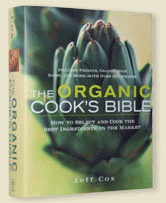Pro-GMO Propaganda Spending Goes through the Roof
Organic Lifestyle Comments Off on Pro-GMO Propaganda Spending Goes through the Roof
The Organic Consumers Association reports that Frankenfood lobbyists spent a record-breaking $27 million in the first half of this year—nearly triple what they spent last year—to stop state GMO labeling campaigns. And that doesn’t include the unprecedented millions Monsanto, Dow, Bayer and others have spent this year on false advertising. The following is from Ronnie Cummings of OCA:
What happens in November, in Oregon and Colorado, and early next year in Maine and other states, could make or break the anti-GMO movement in this country, and Monsanto and Big Food know it.
The Pesticide Purveyors and Junk Food Giants have already made their first million-dollar-plus “smoke-and-mirrors” ad buy in Oregon. Their massive media campaign is likely to be full of the usual lies about how labeling will raise food prices, and how GMO foods are “proven” safe.
It will look much like the campaigns they ran in California and Washington State, where they narrowly defeated labeling initiatives in 2012 and 2013.
Only worse. Because this time, the stakes are even higher.
The corporations that poison our food and planet are desperate to defeat state labeling initiatives in Oregon and Colorado—because they know if they lose either of these two state battles, they lose the state labeling laws war.
Why? Because Congress is not likely to pass the industry-sponsored DARK (Deny Americans the Right to Know) ACT, a bill to preempt state labeling laws, if Oregon and Colorado join Vermont, Maine and Connecticut in passing GMO labeling laws.
Even worse for Monsanto, once state laws mandating the labeling of GMOs in our food are the norm, and consumers get a clearer picture of just how prevalent GMOs are in our food, demand for organic foods will skyrocket. It will be the beginning of the end of Monsanto’s domination of our food supply.
The laws in Maine and Connecticut don’t yet pose a threat to Monsanto and Big Food. Trigger clauses in those laws mean that they won’t take effect unless multiple other states pass labeling requirements. So far only the Vermont law, passed in May, threatens to unravel Monsanto’s Great GMO Smoke and Mirrors Campaign. Which is why industry, led by the Grocery Manufacturers Association, has filed a lawsuit to try to overturn Vermont’s law.
But industry can’t sue every state in the nation. If voters pass GMO labeling laws in Oregon and Colorado in November, Monsanto will need more than smoke and mirrors to perpetuate its crimes against consumers, farmers and the environment.
We know, from years of fighting this battle that our government is going to protect industry profits. Not your health. This has always been a battle fought by the grassroots. It’s up to us to win it. However long it takes.
Can you help us raise $250,000 by September 15, to support Oregon, Colorado and other state labeling campaigns? Your donation will help us counter Monsanto’s massive lobbying and disinformation campaigns in Congress and the mass media. OCA is asking for donations to help spread the truth about GMOs and expose Monsanto’s lies. To make a donation, visit this URL:
https://salsa3.salsalabs.com/o/50865/p/salsa/donation/common/public/?donate_page_KEY=11328.
***
ORGANIC MILK COWS MAKE EXTRA GOOD BEEF
What happens to organically-raised and fed milk cows after their milking years are over? Lisa Mattson, who does videography and PR for Jordan Winery in Healdsburg, California, provides the answer in this article, posted on Jordan’s online blog, about her recent visit to Mindul Meats. Lisa writes:
You’ve probably heard of GMO-free milk but GMO-free beef? The two share a very symbiotic relationship here in Northern California, where thousands of acres are home to dairy cows.
Mindful Meats is a progressive company that brings local, organic, non-GMO, pasture-raised meat to chefs. In 2013, the start-up became the first non-GMO Project Verified beef company in the United States. How did they do it? They partnered with organic dairies throughout Sonoma and Marin counties. Dairy farmers typically sell their cows once their milking life is over (around four years old, surprisingly).
In the past, there wasn’t an artisanal beef company willing to purchase the animals; they’d go to more commercial processors for fast-food chains or corporate groceries. Mindful Meats has changed the marketplace in just two years.
Our Executive Chef Todd Knoll discovered Mindful Meats last summer while doing menu development research for the Jordan Estate Tour & Tasting and was excited about its philosophy. “The key was whether or not the meat could be as delicious as it was local and sustainable.”
Mindful Meats delivered. It has been Chef Knoll’s source for his miso-glazed beef served on the Estate Tour & Tasting excursion since the launch last fall. “We have found that a life of good care, idyllic pastoral surroundings and organic feed yields a beef of character and flavor unmatched by the conventional lot system,” Chef Knoll says.
Mindful Meats Cofounder Claire Herminjard runs the company under the guiding principle that superior beef begins with well-cared-for animals and respect for the land. “We are providing the purest source of beef we can find,” Herminjard says. “The quality of our cows’ lives is very important to us and to our farmers.”
This summer, Chef Knoll invited me to join him for Mindful Meats first farm tour, hosted for Bay Area customers. Held at Tresch Family Dairy west of Petaluma in Sonoma County, the event gave chefs an opportunity to learn more about non-GMO testing and the benefits of converting dairy cows to beef cattle, while exploring the ranch and enjoying a lunch showcasing local cheeses, creams, fruit, vegetables and Mindful Meats brisket.
Our hosts were Herminjard and farm owner Kathy Tresch. Herminjard isn’t your typical CEO, and definitely not the garden-variety stereotype of a farmer. She’s 31 years old with an ever-present smile and rosy cheeks—a natural beauty who seems to have found her home in T-shirts, jeans and boots on dairy farms after years in the tech industry.
Tresch is an equally kind, naturally pretty woman in her fifties with a passion for Sonoma County farming and preserving local land for agriculture and conservation. She led guests on a driving tour of their more than 2,000-acre ranch where about 900 Holstein milking cows reside in the pastures surrounding the family home. (The Treschs’ three children have all joined the business in recent years.) They are deeply connected with their land and started with organic farming in 1995. The following year, their cows became the second certified organic herd in the California.
“We were already operating in a more organic protocol even when we were a conventional dairy,” Tresch said. “Having a gentle touch on the land and feeding our cows a natural diet was always important to us.”
According to the University of California at Davis Extension, there were more than 150 dairies in the Sonoma/Marin area prior to the 1980s, many of which were small, family farms, but today only about 90 are left. Why? Prices for non-organic milk are set by the California Department of Food and Agriculture, and according to Tresch, “Small dairies could barely pay the bills with the money earned from the milk.”
To help solve the economic problems family dairies were confronted with, Albert Straus, a second-generation dairy farmer, took a radical step: He converted the family farm to organic in 1994 and founded Straus Family Creamery, the first 100% certified organic creamery in the country, creating the first field-to-bottle infrastructure for organic milk. Going organic saved the remaining farms from going out of business, as organic milk commands a much higher price—and those prices are set by the creamery, not the state government. As of 2013, 71% of dairies in Marin and 63% in Sonoma are certified organic and more are making the transition.
While overlooking Tresch’s ranch from a golden hilltop, one chef on the tour asked Kathy how she felt about seeing her cows go from milk to beef cows.
“The animals are like family to us,” Tresch said, “but we can’t keep them all their entire lives. Claire looks every cow in the eye and says ‘thank you,’ and that means a lot to me.”
Mindful Meats sees its role as increasing people’s access and connection to organically, sustainably raised meat through a fair and transparent system. Their cows spend their lives grazing the floral grasses of Marin and Sonoma counties, about 45 minutes southwest of Jordan Winery. They live an average of five years on pastures as dairy cows, with more than 80 percent of their diet coming from pasture grass. (Approximately 20 percent of their diet is balanced throughout their lifetime with organic silage, alfalfa and grains.)
“We believe healthy soil, healthy grass, and a healthy herd lead to a healthy planet and to healthy food,” Herminjard said. “It’s been difficult for many chefs and consumers to find animals that were sustainably raised and respectably harvested. We are changing that.”
***
THE HEIRLOOM EXPO IS SEPTEMBER 9 – 11
The National Heirloom Exposition will be held September 9, 10, and 11, 2014, at
the Sonoma County Fairgrounds in Santa Rosa, California. The Expo is a
not-for-profit event centered on the pure food movement, heirloom vegetables,
and anti-GMO activism. Last year over 18,000 people from around the country
and beyond visited the Expo. With more than 100 speakers and 300 natural food
vendors, the event was the largest gathering of its kind ever, giving it the sobriquet
of the “World’s Fair of Pure Food.”
This year’s keynote speaker is author and anti-GMO activist Jeffrey Smith, who’ll
be speaking at 7 p.m. on Wednesday the 10th in the Fairgrounds’ main hall. His
topic is, “Protecting Future Generations from GMOs—Now!” Admission is $10
for one day, $25 for all three days. Children 17 and younger are free. The Expo
will be open from 11 a.m. to 8 p.m. all three days.
For more information, visit www.theheirloomexpo.com.
###












